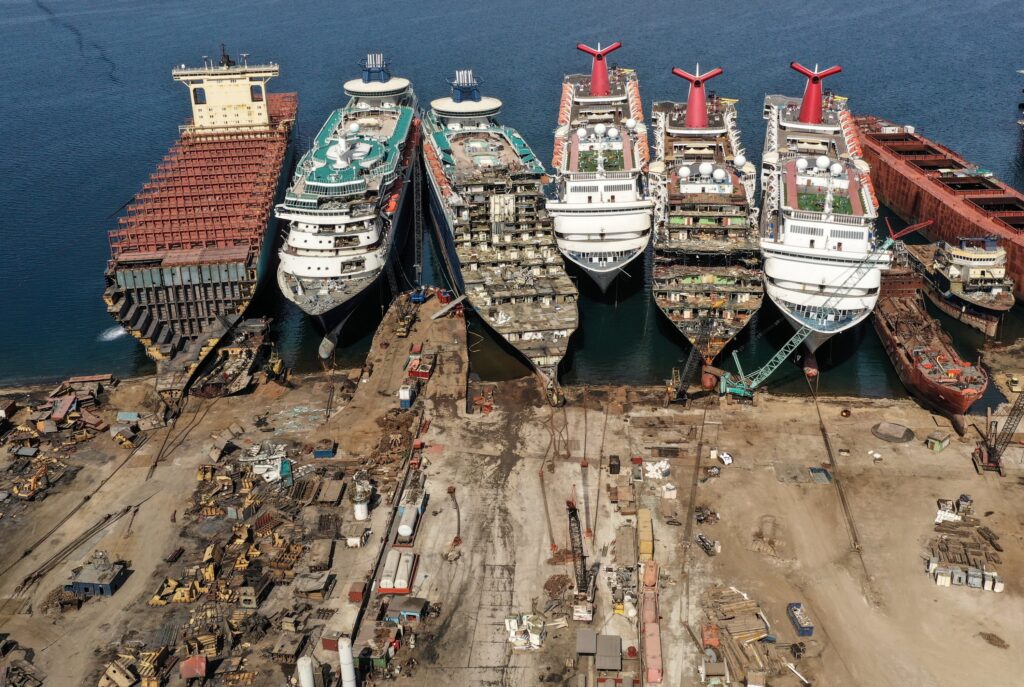The ship-dismantling industry in Alang, Gujarat, India is facing a severe crisis. Its share of old ships has been decreasing due to competition from neighboring countries like Pakistan and Bangladesh. Additionally, the lack of buyers for the steel generated from ship breaking has worsened the situation. Previously, the steel was sent directly to re-rolling mills, but impractical quality control orders have hindered this process. As a result, the ship-breaking yard is on the brink of starvation and struggling for survival.
One of the main reasons for fewer ships coming to Alang is that ship manufacturers cannot pay higher prices to ship owners since they are unable to sell the steel. In 2023, Alang received the lowest number of ships for dismantling, only 56 in total.
The steel obtained from dismantled ships is used in various steel products such as TMT bars, TMT rods, structural steels, construction steels, plates and sheets, wire rods, billets, and ingots. The Bureau of Indian Standards (BIS) made several standards mandatory for manufacturers of these steel products in 2012. Ship breakers are now unable to provide the required metallurgy history for the re-rolling raw material, which has become mandatory under the law.
The Ship Recycling Association (India) has made several representations to the central government and Prime Minister’s Office (PMO) over the past decade, highlighting the challenges faced by ship breakers. They are hopeful that the government will address the BIS issue soon.
Due to the difficulties in selling the steel, ship recyclers are now sending it as scrap directly for melting, earning Rs 5 less per ton. This has resulted in a significant loss of revenue.
Industry representatives, such as Kirit Soni, former president of the Saurashtra Chamber of Commerce and Industry, are demanding an amendment to the quality control rules. They propose setting up laboratories at Alang itself to test the material quality of each ship and ensure quality control at the doors of re-rolling mills. The government could also impose necessary restrictions to prevent misuse of quality control measures.
As a consequence of these challenges, several plots in Alang have already closed down, and only around 25 out of 130 plots are currently operational, working at half their capacity due to non-viability. The ship-dismantling industry is in an existential crisis, despite efforts by the union and state governments to support its survival.







